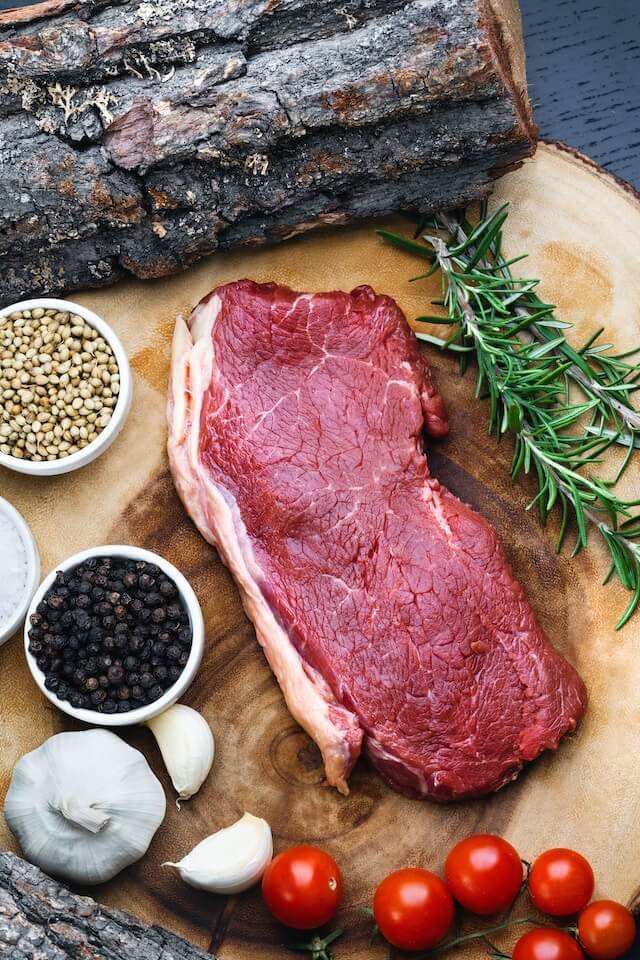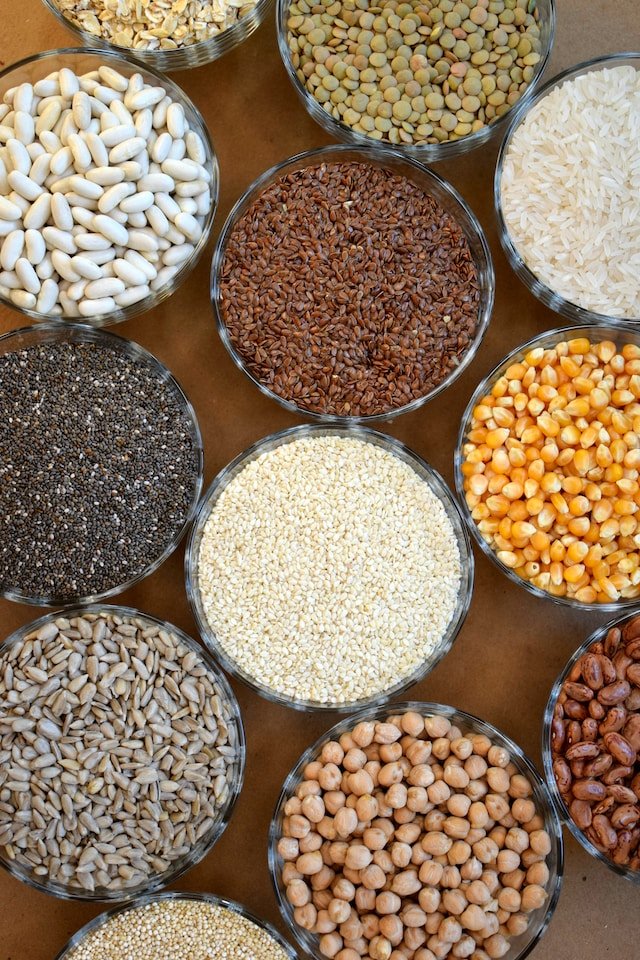The ketogenic diet, commonly known as “keto,” has become an extremely popular way of eating over the past few years. It focuses on high-fat, low-carb meals that can help you lose weight, reduce inflammation, and improve brain function. The keto diet works by putting your body into a metabolic state called ketosis, where your body switches from primarily burning carbs for energy to burning fat. This transition alone can lead to rapid weight loss, without needing to strictly limit calories.
Beyond the numbers on the scale going down, keto may provide other benefits like lower blood sugar, improved focus, more consistent energy levels, and reduced symptoms for some chronic health conditions. However, the keto diet requires discipline – you’ll have to severely restrict carb intake, including cutting out common foods like bread, pasta, sugary snacks, and starchy vegetables.
The drastic dietary changes can be challenging at first, but many people who stick with keto report increased satiety and energy. If you’re looking to lose weight, improve your health, and don’t mind giving up baked goods and carb-heavy meals, the ketogenic diet may be right for your needs. This article explores the health benefits and drawbacks of the keto diet, identifies suitable candidates, and provides essential guidelines for maintaining health while following this dietary regimen.

Health Benefits and Drawbacks of Keto
Many studies and diet planners have talked about the health benefits of keto. Here are some of the key potential benefits associated with a well-formulated ketogenic diet:
- Weight loss: Many studies show keto is more effective for fat loss than low-fat diets. It suppresses appetite and boosts metabolism.
- Improved blood sugar control: A keto diet can help lower blood sugar levels and insulin resistance in those with type 2 diabetes or prediabetes.
- Reduced risk factors for heart disease: Keto has been shown to improve triglyceride, HDL and LDL cholesterol levels.
- Neuroprotective benefits: For neurological conditions like epilepsy, Alzheimer’s and Parkinson’s, keto may help reduce symptoms.
- Cancer-fighting properties: Researchers are studying the potential of lowered carbs and ketosis to help prevent and complement cancer treatment.
- Increased mental focus and clarity: Keto advocates report improved concentration due to stable energy levels.
However, keto may not be a well-balanced diet that is suitable for all kinds of age groups and genders. Studies have found that while keto has a significant benefit in overall health improvement of individuals that are struggling with weight loss and metabolic issues.
There have been drawbacks to sticking to this diet routine. Here are some of the following:
- Nutrient Deficiencies: Restricting carbohydrate-rich foods can lead to insufficient intake of essential nutrients, vitamins, and minerals. This can be mitigated through careful food choices and, in some cases, supplementation.
- Keto Flu: Some individuals experience “keto flu” during the initial stages of the diet, characterized by fatigue, headaches, and nausea. This is a temporary side effect as the body adapts to burning fat for fuel.
- Digestive Issues: The sudden increase in dietary fats can lead to digestive discomfort, such as constipation or diarrhea. Adequate hydration and fiber intake can help alleviate these issues.
- Long-Term Sustainability: The strict nature of the diet can make it challenging to sustain over the long term. Many individuals find it difficult to maintain such a restricted carbohydrate intake indefinitely.

Who Can Benefit From Keto
Whether you are living an active lifestyle and hit the gym regularly or once in a while, there are some notable pointers to know who can include keto in their dietary regimen. Anyone with the these symptoms can make full use of keto and begin to feel rapid results and health benefits within a few days of starting out. The keto diet may be suitable for:
Obese individuals: The rapid initial weight loss can provide motivation and health benefits for those struggling with obesity.
Type-II Diabetics: The diet’s potential for improved insulin sensitivity can be beneficial for managing blood sugar levels.
Epilepsy Patients: The keto diet was originally developed to treat epilepsy and still holds promise for reducing seizures in certain cases.
Individuals With Neurological Disorders: Some research suggests that the keto diet could be beneficial for certain neurological conditions, such as Alzheimer’s disease and Parkinson’s disease.
Some Guidelines For A Healthy Keto Journey
If you feel the need to start keto and you want to see improvements or you have any of these medical conditions, we would suggest that you try the following steps before you decide:
Consult a Professional: Before embarking on the keto diet, consult a healthcare provider or registered dietitian to ensure it’s a safe and suitable choice for your individual needs.
Focus on Nutrition Diversity: Incorporate a wide range of nutrient-rich foods to prevent deficiencies. Include vegetables, healthy fats, lean proteins, and adequate hydration.
Watch Your Fats: Choose healthy sources of fats like avocados, nuts, seeds, and fatty fish while limiting saturated and trans fats.
Monitor Ketone Levels: If aiming for ketosis, consider monitoring your ketone levels using blood, urine, or breath tests, under medical guidance.
Plan for Transition: If you decide to transition out of the keto diet, do so gradually to minimize digestive discomfort and prevent rapid weight regain.

Top Recommended Foods for Keto
Here are some good food options to eat on a ketogenic diet:
- Meat – Beef, chicken, pork, lamb, etc. Focus on fattier cuts and organ meats.
- Fish and Seafood – Salmon, trout, tuna, mackerel, shrimp, scallops, etc.
- Eggs – Considered one of the healthiest foods. Great for breakfast or snacks.
- Non-starchy Vegetables – Broccoli, spinach, kale, cucumbers, peppers, mushrooms, etc.
- High Fat Dairy – Full fat milk, hard cheeses, plain full fat yogurt and Greek yogurt, heavy whipping cream.
- Nuts and Seeds – Almonds, walnuts, flaxseed, pumpkin seeds, sunflower seeds, etc.
- Avocados and Berries – In moderation, avocados and lower carb berries like blueberries and raspberries.
- Healthy Oils – Extra virgin olive oil, avocado oil, coconut oil, flaxseed oil.
- Condiments – Salt, pepper, herbs, spices, mustard, hot sauce, lemon juice, etc.
- Sweeteners – Small amounts of stevia, erythritol or monk fruit.
It’s important to stay under carb, protein and fat macros on keto. Drink plenty of water and supplement electrolytes. And remember to get plenty of leafy greens!




Foods To Avoid in Keto
Here are some foods that should generally be avoided or limited on a ketogenic diet:
- Grains – Wheat, rice, oats, corn, pasta, cereal, etc. These are high in carbohydrates.
- Starchy vegetables – Potatoes, sweet potatoes, peas, parsnips, butternut squash. Moderate carb content.
- Legumes – Lentils, beans, chickpeas. Also quite high in carbohydrates.
- Fruits – Apples, bananas, grapes, mangos and most other fruits. Contain natural sugars.
- Sugary foods – Sodas, juices, candies, ice cream, cakes, donuts. Very high in sugar.
- Processed snacks – Crackers, pretzels, chips, toast, granola bars. Often made with refined carbs.
- Condiments – Barbecue sauce, teriyaki sauce, sweetened salad dressings. Check carb count.
- Alcohol – Beer, wine, liquor, mixed cocktails. Watch for added sugars.
- High carb nuts – Chestnuts, pistachios, cashews. Stick to lower carb nut options.
- Unhealthy fats – Processed vegetable/seed oils, trans fats, margarine. Emphasize healthy fats.
- Low fat dairy – Skim or low fat milk, yogurt, cottage cheese. Stick to full fat.
Adhering closely to carb limitation is key in maintaining ketosis on a ketogenic diet. Be mindful of total carb intake.



Conclusion
The keto diet offers a unique approach to weight loss and potential health improvements. While its benefits are notable, the diet is not without its drawbacks and challenges. Individuals considering the keto diet should do so under professional guidance, understanding both its potential benefits and the importance of maintaining a well-balanced, nutrient-rich eating pattern. Remember, health is a holistic journey, and the best approach is one that is sustainable, enjoyable, and aligned with your personal goals and needs.
Keto Programs
Explore a world of health and vitality with our curated keto programs. Designed to guide you through the transformative journey of the ketogenic lifestyle, these programs offer comprehensive insights, meal plans, and expert guidance. Discover the power of low-carb living and kickstart your wellness journey today. Join this program to embark on a path to sustained energy, weight management, and overall health with our top-rated keto programs.




